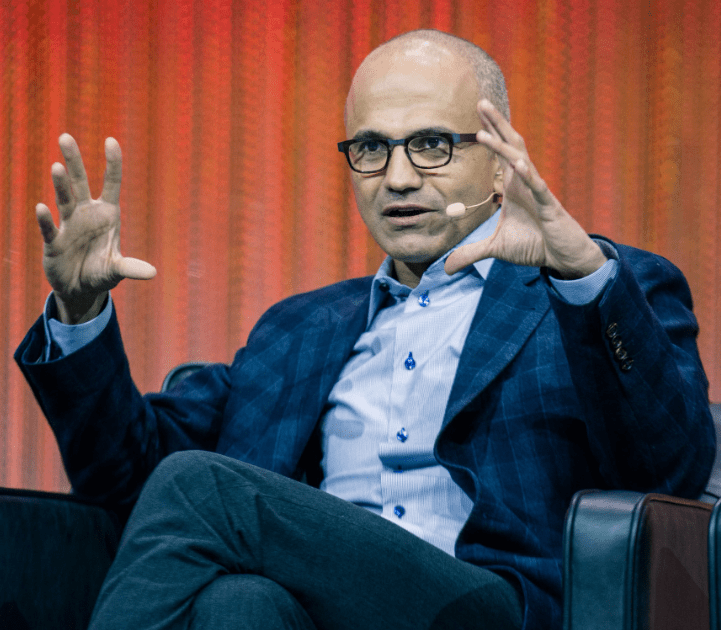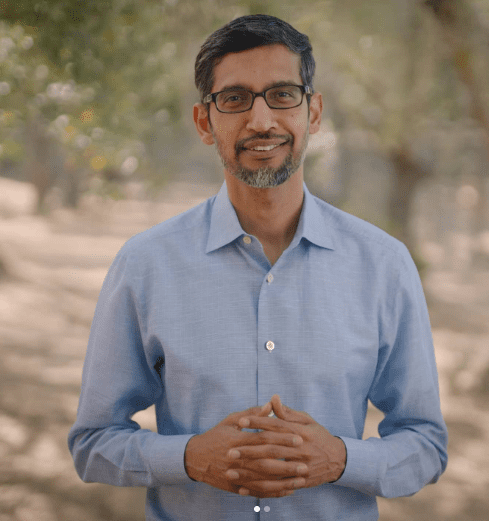Many have asked why CEOs of tech companies are from India, this inspired us to write about 3 reasons why so many CEOs are from India.
Of course we are familiar with names like Sundar Pichai from Alphabet who oversees Google or Satya Nadella who now leads Microsoft.
Then, who was just appointed at the end of 2021, namely Parag Agrawal as CEO of Twitter.
He has joined at least a dozen other Indian-born CEOs in a corner of the tech firm’s offices in Silicon Valley, the world’s most influential tech hub.
According to statistical records, Native Indians account for only about 1% of the population in the United States and only 6% of the entire workforce in Silicon Valley.
However, disproportionately these 6% have a lot of representation in high positions in the company. The important question is “Why?”.
3 Reasons Why Many CEOs Are From India
If you really want to know the answer, read this article to the end and you will find 3 reasons why so many CEOs are from India.
1. Competition in India is very tough
Various life competitions are increasingly making many young people depressed, mentally affected, healing a little bit, aka vacations that cost money.
To quote R Gopalakrishnan, former executive director of Tata Sons and co-author of The Made in India Manager, as saying that “No other country in the world ‘trains’ so many of its citizens in a gladiator way like India.”
“Growing up in India educates every individual to be a natural fighter, from obtaining birth certificates to death certificates, from school admissions to finding jobs, from lack of infrastructure to inadequate capacity”
Don’t imagine that life in India is full of flowers and singing all day long.
The true reality of India is exemplified by the police who always arrive late to the crime scene or a child who works hard and is almost depressed in the film The White Tiger (2020).
Competition and chaos, in other words, make Indians instinctively adaptable problem solvers .
In fact, this affects the way Indians work, who often prioritize professionalism over personal matters.
Of course this is very suitable to be applied in the American office culture that encourages everyone to do a lot of work.
2. Education
Since the 1960s, India has made gradual shifts in its educational curriculum that emphasizes knowledge of mathematics, science and technology.
This knowledge cluster is known as STEM, namely Science, Technology, Engineering, and Math.
You will very easily find technology-based campuses in many cities in India called the Indian Institute of Technology , this is under the auspices of the Indian ministry of education.
Do not forget to apply English as the language of education in India which allows them to access a variety of the latest knowledge literature from Europe and America.
Then it also makes it easier for Indian technology college graduates to compete abroad, be it Europe or America.
America’s tightening immigration policies that prioritized professional workers since the 1960s also made it easy for alumni of technology colleges in India to get work permits in America.
This policy is like a welcome greeting to the alumni of the institute of technology in India who are masters of the STEM field and are in line with the needs of the high-end labor market in the United States.
In these two decades, More than 70% of H-1B visas i.e. work permits for foreigners issued by the United States were granted to Indian software engineers.
Then nearly 40% of all overseas engineers living in cities like Seattle are from India, giving them a greater chance of becoming CEOs from India.
This group of immigrants from India does not resemble any other group of immigrants from any other country.
They were selected with a selection process three times more stringent than engineers from other countries.
Selection in fierce social life in India, selection in competition in college, and also job selection to enter technology companies in America.
Although a small percentage of these Indians already have the privilege of being born into the upper caste and able to go to famous and expensive colleges.
Then also a smaller share, namely those who can finance master’s education in the US, as can now be found in Silicon Valley.

3. Revolution of Work Culture and Mental Attitude
Work culture is one of the issues that dominate the problems of technology companies in Silicon Valley.
As practiced by Satya Nadella, a CEO from India who took over as CEO of Microsoft in February 2014. He inherited a toxic culture in a company that is considered a tech dinosaur.
Bill Gates, the founder, was known to berate employees, and Steve Ballmer, who succeeded Gates, continued the tough business tactics his partners hated.
Microsoft has lost the battle for smartphones, and Nadella is directing Microsoft’s technology platform to focus on desktops and pave the way to cloud technology.
As Alex Salkever wrote in the book “From Incremental to Exponential”, Nadella chose to focus first on changing Microsoft culture.
Since birth in India, and with Buddhist beliefs, he is determined to turn the company into one that embraces what he calls the “learn everything” curiosity, as opposed to today’s worldview which is geared towards “knowing everything”.
Nadella has now made it clear that the old and aggressive behavior is no longer acceptable in the Microsoft environment.
Microsoft now does not tolerate anger or shouting at executive meetings.
As a CEO from India, Nadella sets an example by never raising her own voice or showing blatant anger to employees or executives.
Never writing angry emails, he is constantly working to create a more comfortable environment.
As a result of a cultural shift and a change in strategy thanks to the direction of Satya Nadella, Microsoft’s market capitalization increased from about $300 billion in Nadella’s rise to $2.5 trillion and made it one of the two most valuable companies in the world.
Likewise with Sundar Pichai, CEO from India who also inherited a company with cultural problems.
Google is known for having an excused workplace culture, where sexual relationships between top executives and employees create internal tensions.
With his gentle and humble Indian demeanor, Pichai steered a large Alphabet corporate team into calmer waters and reorganized workplace ethics.
The result is that he has achieved as much success as other Indian CEOs such as Shantanu Narayen of Adobe and Jayshree Ullal of Arista Networks.
Outside of the tech sector, other Indian CEOs have also left their mark on companies including Indra Nooyi at PepsiCo and Ajay Banga at Mastercard.
All thanks to the subtle leadership based on the process they have gone through in the company climbing the corporate ladder from the bottom.
This gives them a sense of humility that sets them apart from many CEOs who came from company founders with a tendency to be arrogant and have great power in their vision and management.
Alex Salkever also said people like Mr Nadella and Mr Pichai also brought some caution.
They reflect a “gentle” culture typical of Hinduism and Buddhism which makes them ideal candidates for top positions in a company.
Especially at a time when the reputation of big technology has plummeted amid congressional hearings in America on the protection of user data and the widening gap between the richest in Silicon Valley and the rest of America.
Their humble leadership is a big plus, said Saritha Rai, a technology reporter with Bloomberg News.
India’s diverse society, with so many customs and languages gives CEOs from India the ability to navigate complex situations especially when it comes to organizational scaling.
Coupled with the ‘hard work’ ethic that makes them grow well,” he added.
Also Read : How a Google Online Course Can Help You Find the Best Job in Your Field?
Americans’ Recognition of Indian CEOs
These are traits that any company’s board of directors would recognize and appreciate, especially when the other option is company founders who are arrogant and very confident that they are entitled to their work.
These 3 reasons allow a new CEO to change the company culture to be healthier and more productive. This is what is believed to have benefited Indian CEOs.
This may also be the reason why Twitter’s board unanimously approved Jack Dorsey’s recommendation to appoint Parag Agrawal as his successor, again the CEO is from India.
A work culture transformation is what Twitter may need above all else.
Twitter has received a barrage of justified criticism for its toxic work culture and insensitivity to abuses on its platform.
Coupled with Jack Dorsey’s status is part-time CEO of another company, namely payments start-up Square which is building a blockchain and cryptocurrency ecosystem.
Dorsey’s predecessor, Dick Costolo, was someone who practiced the company’s chauvinistic culture and an all-male board.
As many tech CEOs do, he really likes attacking people in public rather than listening to criticism.
That’s a response no Indian CEO would have made, and that’s why they were chosen to run America’s leading tech company.
Closing
There is no doubt that competition in life, education and behavior gives strength to struggle in the overseas land and makes Parag Agrawal, Satya Nadella and others become CEOs from India.
In a country of more than a billion people, much of which is hampered by rampant corruption, weak infrastructure, and limited opportunities, it takes a lot to survive, let alone progress.
Indians learned to be tough, to fight endless odds, and to make the most of what they had.
It should be with a variety of scholarships provided by the government, should motivate the younger generation to be able to study well to win the competition in the global arena to be like the CEOs from India above.

